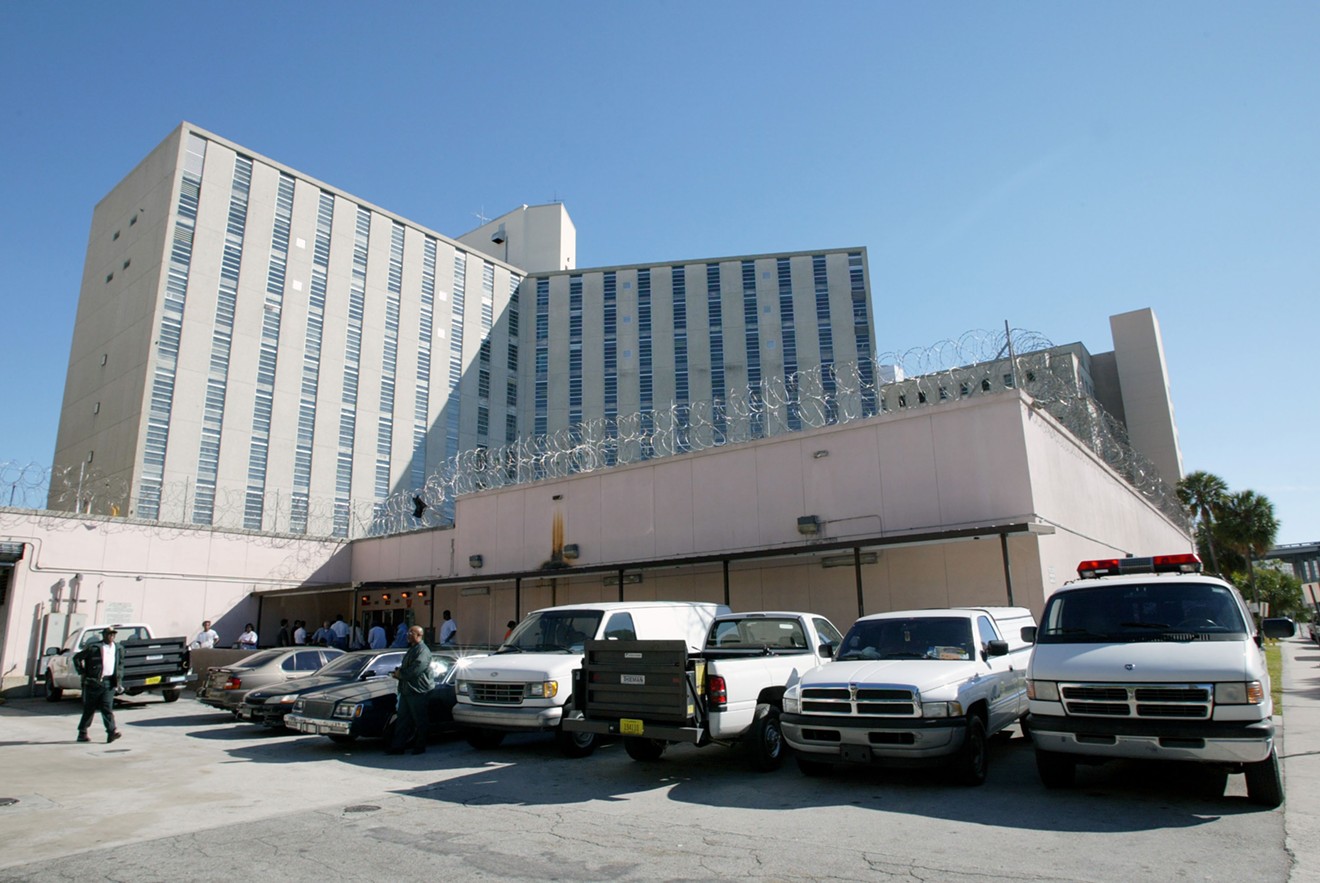Since 2013, the Miami-Dade Corrections & Rehabilitation Department has been under federal supervision because of inhumane living conditions and substandard care at its facilities.
A years-long U.S. Department of Justice investigation found a "pattern and practice of constitutional violations," deplorable living conditions, and deliberate indifference toward inmates, particularly those with mental illness.
And that's not all: A 2011 letter outlining the findings of the investigation notes that the Pretrial Detention Center has significant structural deficiencies and a hygiene problem. The facility was described as "difficult, if not impossible, to adequately clean." Nearly a decade later, the situation persists. In an Atlantic podcast earlier this year, an inmate-rights advocate described the jail as ”sticky” and “disgusting.” County commissioners who recently toured the jail say the facility is one big safety hazard.
The jail only continues to fall apart, posing tremendous risks to corrections staff and inmates. That's why, Miami-Dade Corrections and Rehabilitation Director Daniel Junior says, the jail is in dire need of replacement.
For the past several months, commissioners have discussed a proposal by County Mayor Carlos A. Giménez to construct a new, $448 million megajail. Where exactly that new jail is to be built became clearer this month, when Junior gave an update during the October 6 commission meeting. The county is seeking to buy and develop eight to fifteen acres of available land adjacent to Metro West Detention Center, west of Doral, to build the replacement facility.
Doral Mayor Juan Carlos Bermudez is not exactly on board with that plan. In July, he sent a letter to Giménez arguing that a new jail would negatively affect Doral residents and exacerbate traffic issues. Bermudez urged Giménez to consider the impact of a jail on nearby residents.
"The selection of a site for a new detention facility...cannot simply consider what is in the best financial and operational interests of the County or special interests but balance the impact such a facility will have on the surrounding communities," the letter says.
Since Giménez proposed the jail replacement plan in February, advocates for criminal-justice reform, along with medical students, lawyers, doctors, and community activists, have expressed their opposition to a new detention facility. While opponents argued that the county should spend money on affordable housing and funding the social services that would keep people out of jails, Giménez insisted the jail replacement was about safety.
"We need to get the jail issue put to bed," the mayor said during the October 6 meeting. "We need to have an efficient system that protects our employees and our jail population. It's an investment in the future, and it's also an investment in actually giving a more humane treatment to our prisoners, and that's what we need."
Several callers spoke out against the jail during the time allotted for public comment, as they have during every commission meeting during which the detention center has been discussed. One speaker, Alissa Farina, told commissioners that if they want to give inmates more dignity, the county should better train correctional staff and not charge inmates and their families for phone calls.
"Investing in a new jail shows a commitment to locking up our residents," Farina said. "We do not need a new jail, just compassion and better criminal-justice policies."
Junior, the corrections director, presented a report outlining the financing plan for the construction project. The jail would be funded by county bonds, and annual savings from a decrease in operational and staffing costs would repay the bond debt. According to Miami-Dade Corrections, the bond would not need to be approved by voters.
Miami-Dade Corrections estimates that construction will take about six years to complete. Because the state owns the land adjacent to Metro West, acquiring the land may delay the process by about a year. Building on the Metro West site will also require permitting and approvals from the county's Department of Environmental Resources Management and from the U.S. Army Corps of Engineers.
[
{
"name": "Air - MediumRectangle - Inline Content - Mobile Display Size",
"component": "19274298",
"insertPoint": "2",
"requiredCountToDisplay": "2"
},{
"name": "Editor Picks",
"component": "17482312",
"insertPoint": "4",
"requiredCountToDisplay": "1"
},{
"name": "Inline Links",
"component": "18711090",
"insertPoint": "8th",
"startingPoint": 8,
"requiredCountToDisplay": "7",
"maxInsertions": 25
},{
"name": "Air - MediumRectangle - Combo - Inline Content",
"component": "17482310",
"insertPoint": "8th",
"startingPoint": 8,
"requiredCountToDisplay": "7",
"maxInsertions": 25
},{
"name": "Inline Links",
"component": "18711090",
"insertPoint": "8th",
"startingPoint": 12,
"requiredCountToDisplay": "11",
"maxInsertions": 25
},{
"name": "Air - Leaderboard Tower - Combo - Inline Content",
"component": "17482313",
"insertPoint": "8th",
"startingPoint": 12,
"requiredCountToDisplay": "11",
"maxInsertions": 25
}
]












